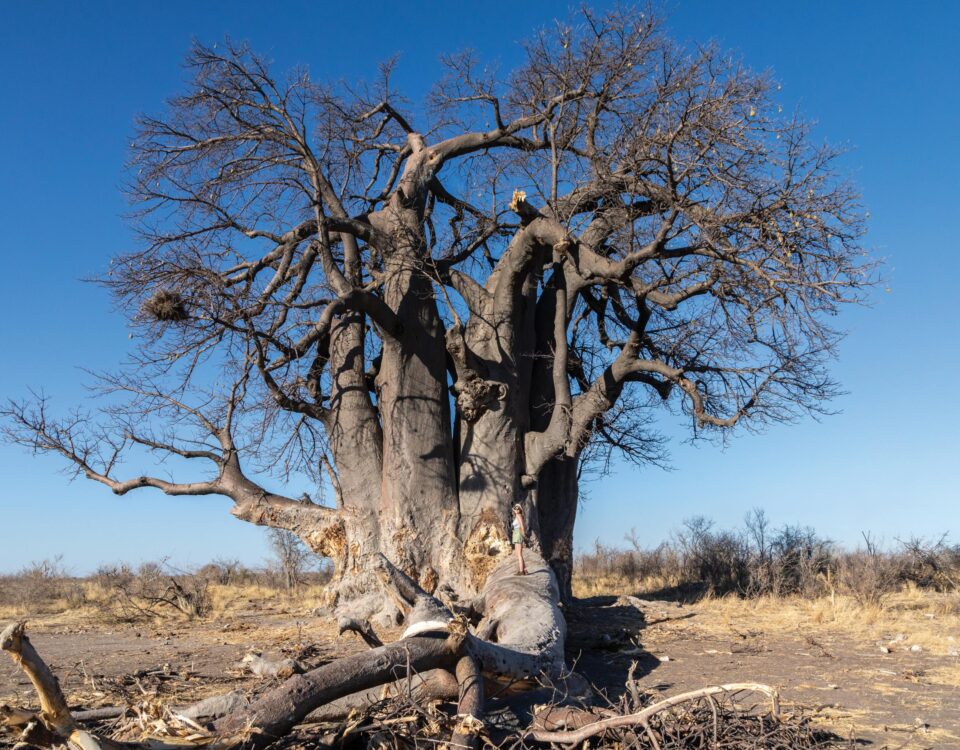Mashi Crafts: Weaving more than palm leaves into peoples lives
July 12, 2012The first collection of Namibian species in the world – the legacy of Mike Griffin
July 12, 2012By Linda Baker, SPAN Communications Officer
He’s been shot at by UNITA rebels, narrowly escaped being blown up by a landmine, had close encounters with lions and elephants, been insulted by angry communities and woke up one night to find a five-metre black mamba in his tent. For Matambo Singwangwa, a ranger based at the remote Ngenda Ranger Station in Mudumu National Park in Eastern Caprivi, this is all pretty much in the line of duty.
“I like wildlife and living in the park. I don’t like town life. I want to see what is going on with the animals,” he tells me. “When I joined the Ministry in 1990, there was a lot of poaching going on and now incidents are down to two or three a year.”
He attributes this to the Government’s Community-based Natural Resource Management (CBNRM) programme, the introduction of conservancies, work done by Integrated Rural Development and Nature Conservation (IRDNC), and the joint patrols done between the Ministry of Environment and Tourism, conservancies and the IRDNC.
“When I started we were regarded as enemies by the communities – as if we were lions and hyaenas – and when we went to communities we were insulted and chased out. But attitudes have changed and today we are friends.”
The Khwe-speaking ranger was born in West Caprivi, where a teacher instilled a love of nature in an impressionable young Matambo. He applied to the MET for a post of labourer and started out at Susuwe Ranger Station in what is now Bwabwata National Park, where he and other labourers worked on opening roads and building the station. A conservation official noted his keen tracking skills and it wasn’t long before he and other Barakwena speakers were used for illegal hunting patrols. In 1996 he was promoted to the position of Scout – a feat he is proud of, as he only managed to finish Grade 7.
In 2003 he was transferred to Mudumu National Park as a ranger, where he continues with anti-poaching patrols, supervises staff and works with neighbouring communities. He is also the co-ordinator of the law-enforcement working group of the Mudumu North Complex, which conducts joint patrols with conservancy game guards. Poaching in the area has decreased and game numbers are up, so much so that last year the MET introduced a number of animals into the area that are now cared for by the local community in conjunction with Singwangwa and his team.
This shy, quiet-natured man is highly respected by his peers, colleagues and superiors due to his reliability, dependability and honesty. He epitomises the qualities of a MET Ranger, as he works largely unsupervised, has an excellent knowledge of wildlife and monitoring, interacts well with people and can fix just about any mechanical problem.
Last year, with these attributes, Singwangwa became the first recipient of the MET’s prestigious Welwitschia Award, which recognises the contribution of staff members who demonstrate outstanding physical and moral leadership qualities and are innovative in their approach to conservation and park management.
“I am proud of the ranks I have achieved, as I’m not qualified. My experience has qualified me. I am also proud of the award I received last year. People have seen what I’m doing, and I want to work harder to get even further.”
This article appeared in the 2008/9 edition of Conservation and the Environment in Namibia.

